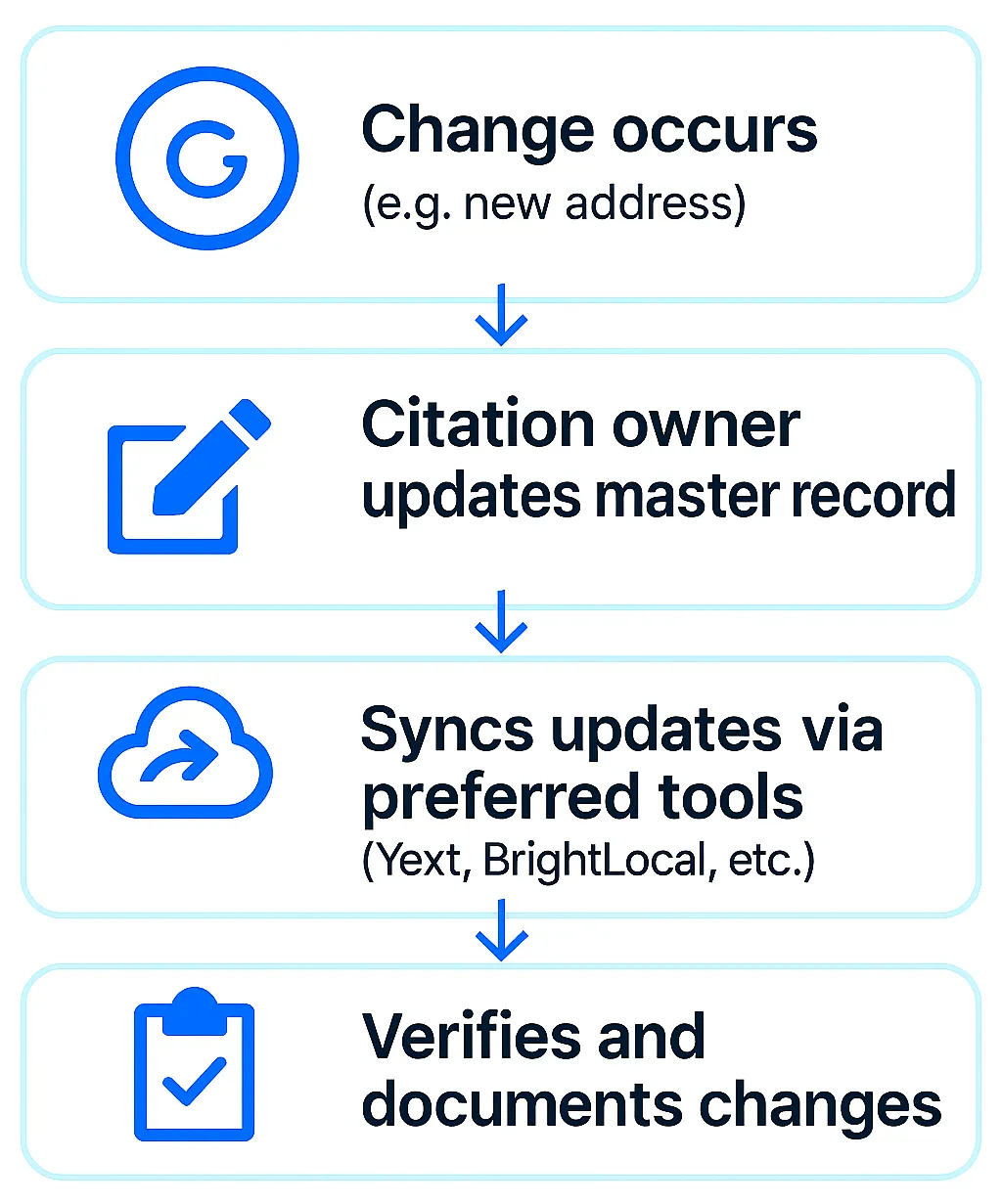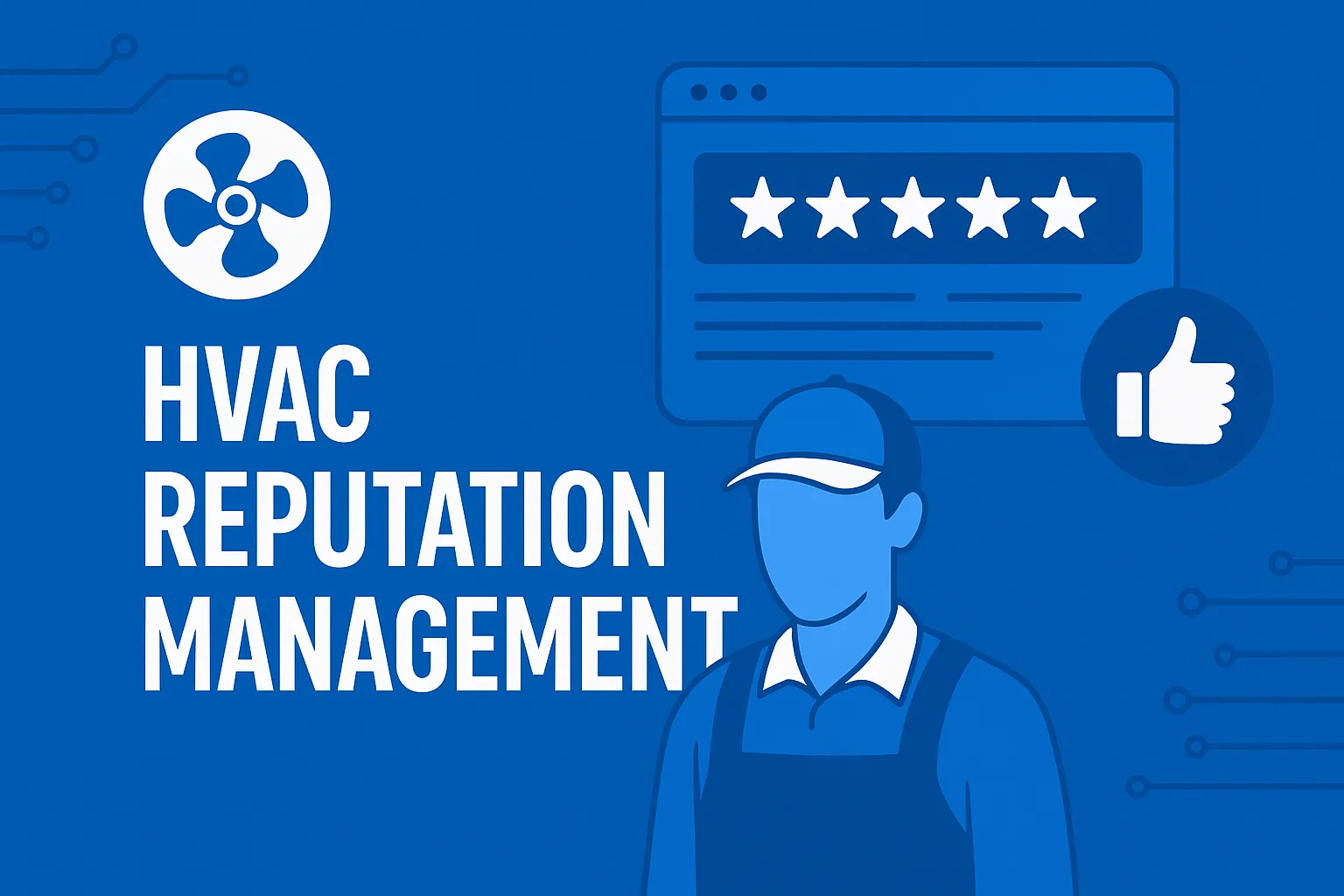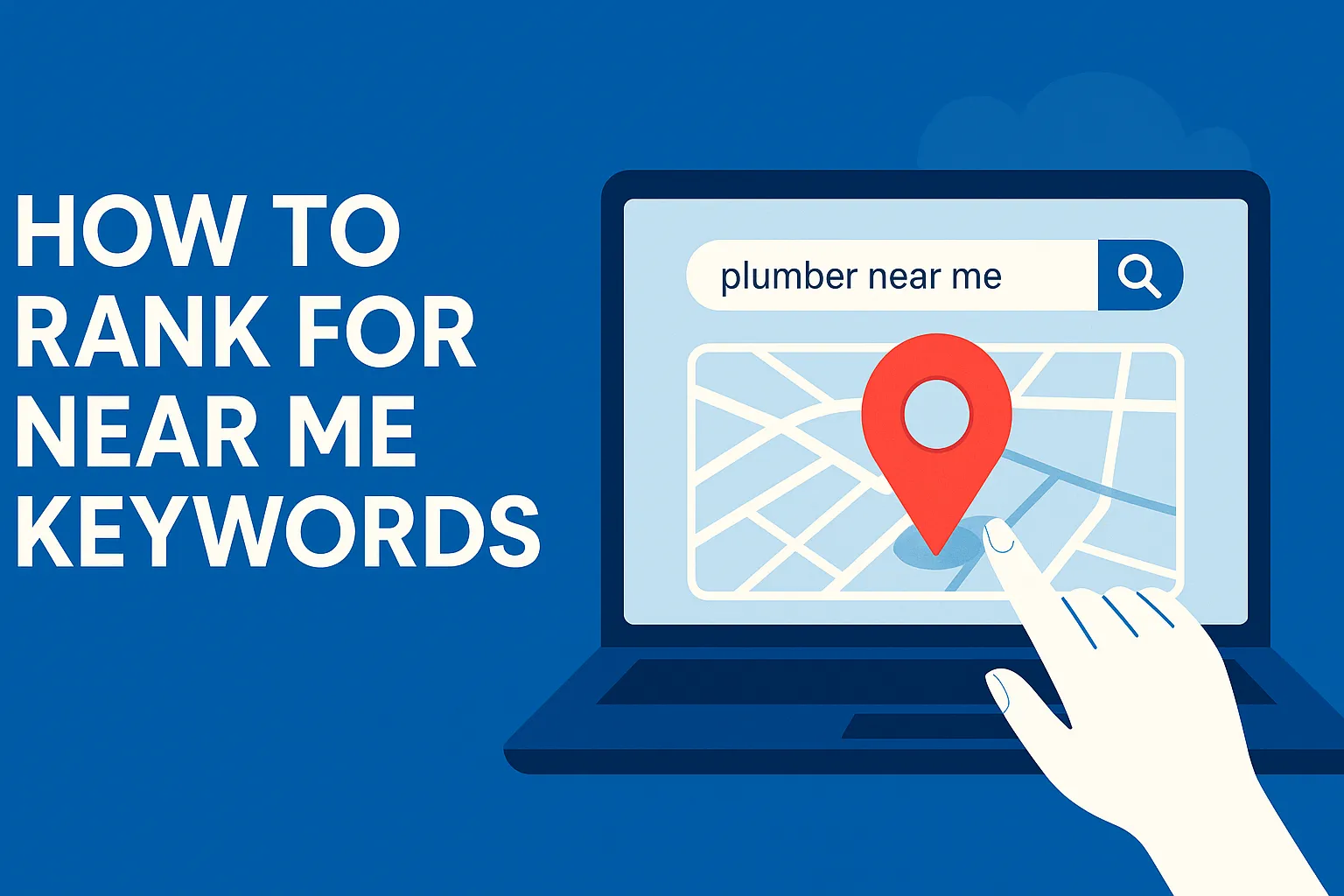Before You Go—Let’s Boost Your Leads!
Join our community of successful HVAC and Plumbing contractors who trust Klutch Growth to enhance their online presence.
Klutch Growth Blog
Citation Audit Guide: How to Check, Fix & Manage Local Citations
If your business appears online with three different phone numbers, which one will people trust? Inconsistent listings confuse customers and drag down your rankings. A citation audit helps you find and fix those errors before they cost you leads. BrightLocal found that 73% of adults aged 35 to 54 would stop using a local business if they came across wrong information in an online directory. That’s a lot of lost trust for something that’s easy to prevent.
A citation audit checks and fixes these listings, which are primarily your business’s name, address, and phone number (NAP) across directories like Yelp and Google. Inconsistent citations can significantly impact your visibility, potentially costing you leads in competitive markets. You can’t afford to lose customers to bad data.
This local citation audit guide shows you how to ensure accuracy, boosting trust and local SEO. It also walks you through what a citation audit is, why it matters for local businesses, how to conduct one, tools to streamline the process, services for support, and advanced tips to stay ahead. Start fixing your citations today to convert traffic into prospects and sales.

What is a citation audit?
A citation audit helps ensure your business’s name, address, and phone number (NAP) are consistent across online directories like Yelp and Google. Inconsistent details confuse customers and can hurt your local SEO, often causing your rankings to drop in specific cities.
A citation audit reviews your business listings to spot errors in your name, address, or phone number across online directories. A citation cleanup takes it a step further by fixing those mistakes. Think of it this way: the audit finds what’s wrong, and the cleanup makes it right.
For instance, an HVAC company might notice its old phone number still appears on Yelp. The audit uncovers that issue, while the cleanup updates it to match the current Google listing. One reveals the problem, the other solves it. The table below shows how they differ.
| Aspect | Citation Audit | Citation Cleanup |
|---|---|---|
| Purpose | Find NAP errors across directories. | Correct errors for consistency. |
| Action | Analyze listings for inconsistencies. | Update or remove incorrect data. |
| Outcome | Detailed report of issues to fix. | Consistent NAP that improves rankings. |
When you run a citation audit, you spot gaps that stop your business from turning website visits into real customers. Regular checks keep your NAP accurate and build trust, which helps your local SEO bring in more leads.
Why Citation Audits Matter for Local SEO
A local business needs a local citation audit guide to shine in local searches. As previously mentioned, citation audits enhance local SEO by ensuring your name, address, and phone number (NAP) are consistent, which directly impacts rankings, trust, and leads. Here are some reasons why audits are non-negotiable.
- Rankings Boost: Consistent NAP signals to Google that your business is legitimate, improving Map pack rankings. BrightLocal reports that firms with consistent citations see a 23% boost in ranking.
- Trust Signals: Accurate listings build customer confidence. For instance, when an HVAC company fixed its NAP, more inquiries came through because calls and visits finally reached the right place.
- Avoiding Lost Leads: Inconsistent citations confuse customers. When your details don’t match, people give up or call the wrong business. Keeping your NAP accurate helps the right customers find you.
- NAP Consistency: Uniform NAP across directories like Yelp strengthens local SEO, aligning with cleanup.
- Duplicate Issues: Audits catch duplicate listings that split your rankings. Removing them consolidates your online presence.
By auditing citations, you prevent lost leads and enhance your rankings. Inconsistent NAP or duplicate listings can drop you from Google’s top spots, costing you jobs. Regular audits keep your HVAC business visible and trusted.
Actionable Tip: Verify your NAP (Name, Address, Phone) across three directories (e.g., Google, Yelp, Bing) today to ensure consistency.
When Do You Need a Citation Audit
Struggling with visibility in local searches for your business? A local citation audit guide helps you decide when to audit your citations to maintain consistent NAP (name, address, phone number) and boost local SEO.
This section outlines key scenarios and frequencies to ensure your listings remain accurate, ultimately converting traffic into prospects.
Checklist: When to Audit Citations
- ✅ Rebranding: Updated your business name? Audit to align all directories.
- ✅ New Location: Moved or added a branch? Ensure NAP reflects changes.
- ✅ Phone Number Change: New number? Update listings to avoid missed calls.
- ✅ Business Category Change: Switched from “Plumber” to “HVAC”? Update categories.
- ✅ Mergers: Combined businesses? Audit to merge or remove duplicates.
If your business checks any of the boxes above, then it’s time for a citation audit.
Signs You Need an Audit
- Ranking drops in Google’s Map pack
- Inconsistent NAP across Yelp or Google, or;
- Poor visibility in local searches signals issues.
Audit Frequency Recommendation
| Business Type | Audit Frequency |
|---|---|
| Small Business | Every 6 – 12 months |
| Multi-Location Business | Every 3 – 6 months |
Quarterly audits catch errors early, while bi-annual checks suit smaller campaigns. Visualize this using a timeline graphic that shows audit schedules. Triggers such as rebranding or new locations require immediate audits to maintain local SEO strength.
Actionable Tip: Review your NAP on Google today; if inconsistent, schedule a full audit.
Types of Citation Audits
Ready to improve your business citations? Different citation audits, such as local, online, industry-specific, and competitor, target unique needs to boost local SEO. This section outlines each type, its benefits, and who they serve, ensuring you stay ahead of the game.
Comparison of Citation Audit Types
| Type | Who it applies to | Benefits |
|---|---|---|
| Local citation audit | Small businesses (e.g., HVAC) | Ensures consistent NAP on Google, Yelp, and Bing. |
| Online citation audit | All businesses | Checks social media and data aggregator consistency. |
| Category or industry audit | Niche businesses (e.g., doctors, law firms) | Improves visibility on niche directories like Healthgrades or Avvo. |
| Competitor citation audit | Competitive businesses | Reveals missing directories your competitors are using. |
- Local citation audit: checks NAP on Google Business Profile, Yelp, Yellow Pages, Bing, and industry-specific directories, which are vital for HVAC firms to rank in local searches.
- Online citation audit: Ensures consistency across social media platforms (e.g., Facebook) and data aggregators, such as Data Axle.
- Category/industry audit: Targets niche platforms—such as law firms on Avvo and doctors on Healthgrades—to boost relevance.
- Competitor citation audit: This is useful for revealing gaps. Checking competitor listings can reveal missing directories that, once added, help attract more customer inquiries.
Step-by-Step Guide to Performing a Citation Audit
Running a citation audit doesn’t have to be complicated. This step-by-step guide walks you through how to check and fix your business listings so your information stays accurate and easy for customers to find.
Step 1: Gather Existing Listings
Search manually on Google, Yelp, and Bing, or use tools like BrightLocal. Include Google advanced search operators (e.g., “business name + address”).
Checklist:
- ✅ Check Google Business Profile
- ✅ Review Yelp listing
- ✅ Verify Bing Places profile
- ✅ Search Apple Maps and Facebook Business
- ✅ Look through niche directories (e.g., Houzz, TripAdvisor, Avvo)
Pro Tip: Use “site.com ‘business name’” to find hidden citations.
Step 2: Check NAP Consistency
Compare your business name, address, phone number, website, and hours across all directories. Keep a spreadsheet to track and align details.
Checklist:
- ✅ Confirm business name matches exactly
- ✅ Check address formatting (suite, abbreviations)
- ✅ Verify phone number is current and active
- ✅ Ensure website URL is correct
- ✅ Review business hours for accuracy
Pro Tip: Cross-check NAP with your Google Business Profile for consistency.
Step 3: Identify Duplicate Listings
Look for duplicate profiles across platforms. Duplicates confuse search engines and split authority. Use manual searches or SEO tools to detect them.
Checklist:
- ✅ Search your business on Google and Bing
- ✅ Look for multiple Yelp or Facebook entries
- ✅ Run duplicate check with Moz Local or BrightLocal
- ✅ Search using old addresses or phone numbers
Pro Tip: Flag duplicates in your tracking sheet before requesting removal.
Step 4: Correct Inaccurate Citations
Fix outdated or incorrect listings manually or through automation. Make sure all directories reflect your current and official business details.
Checklist:
- ✅ Update Google Business Profile
- ✅ Edit Yelp and Bing listings
- ✅ Fix Apple Maps and Facebook details
- ✅ Use tools like Yext or BrightLocal for faster updates
- ✅ Recheck directories after edits go live
Pro Tip: Verify changes within 48 hours to confirm updates are published correctly.
Step 5: Add Missing Citations
Submit your business to reputable directories you’re not listed on. Focus on high-authority and industry-relevant sites to expand your visibility.
Checklist:
- ✅ Add your business to Google, Yelp, and Bing
- ✅ List on Apple Maps and Facebook Business
- ✅ Submit to data aggregators like Neustar Localeze and Foursquare
- ✅ Include niche directories (e.g., Healthgrades, Avvo, Houzz, TripAdvisor)
- ✅ Join local chambers or city business listings
Pro Tip: Review competitor directories to find opportunities your business may have missed.
Step 6: Document Citation Data
Keep all citation details in one organized file for future updates. Document URLs, logins, and any notes on pending changes.
Checklist:
- ✅ Create a central spreadsheet for citations
- ✅ List all directory URLs
- ✅ Save login information and passwords
- ✅ Add notes for future updates or issues
Pro Tip: Use Google Sheets for real-time team updates and access.
Step 7: Maintain Regular Audits
Run audits regularly to keep your listings accurate. The right frequency depends on your business size and industry changes.
Checklist:
- ✅ Set reminders for quarterly or biannual audits
- ✅ Monitor new directories and remove outdated ones
- ✅ Use BrightLocal or Moz Local to automate tracking
Pro Tip: Make audits part of your marketing routine to maintain trust and ranking stability.
Tools & Resources for Citation Audits
Choosing the right tools for a citation audit saves time and boosts local SEO. This section compares free and paid business citation checkers, outlines the pros and cons of manual versus automated methods, and explains when to outsource to citation audit service providers, helping you optimize your citation audits.
Citation Audit Tools Comparison
| Tools | Free/Paid | Best for |
|---|---|---|
| Google Search | Free | Manual NAP checks |
| Moz Check | Free | Quick top-site audits |
| Local SEO Checklist | Free | DIY citation gap analysis |
| BrightLocal | Paid ($39/month) | Comprehensive audit and reporting |
| Whitespark | Paid ($20/month) | Competitor citation tracking |
| Yext | Paid ($500/year) | Multi-location NAP syncing |
Business Citation Checkers
Business citation checkers, such as BrightLocal, Whitespark, Yext, and Semrush, streamline citation audits by following your local citation audit guide. BrightLocal’s Citation Tracker scans NAP accuracy and identifies missing directories.
Whitespark’s Local Citation Finder excels at uncovering competitor citation opportunities. Yext automates NAP syncing across more than 100 platforms for multi-location businesses. Semrush’s Listing Management tool audits and distributes data to global directors, integrating with broader SEO efforts.
These tools save time, ensure consistency, and boost local SEO. Start with free options, such as Moz Check, or consider paid platforms for scalability.
Manual vs. Automated Tools
Manual (Google Search, Spreadsheets)
- Pros: Free, thorough for small businesses, and complete control.
- Cons: Time-consuming, misses obscure directories, and is error-prone.
Automated (BrightLocal, Whitespark, Yext, Semrush)
- Pros: Fast, finds duplicates, tracks competitors.
- Cons: Costs add up, and there is less control over niche sites.
Free methods like Google Search or Moz Check are suitable for small HVAC firms, while BrightLocal, Whitespark, or Yext excel for larger scale. Outsource to citation audit service providers like The Hoth when managing multiple locations or after rebranding.
Citation Audit Services vs. DIY
Running a local citation audit for your local business? Choosing between doing it yourself or hiring a service affects cost, time, and your local SEO results. This section breaks down both options, showing when each works best and what’s usually included.
DIY vs. Citation Audit Services
| Aspect | DIY | Citation Audit Services |
|---|---|---|
| Cost | Free – $100 (using tools like Moz Check) | $200 – $1,500 per location (e.g., BrightLocal: $2 per citation, The HOTH: $500–$1,500) |
| Time | 10 – 20 hours per location | 2 – 4 weeks for a full audit and cleanup |
| Accuracy | Moderate — more prone to manual errors | High — expert checks and automated validation |
| Scalability | Limited — manual work for each location | High — efficient for multi-location businesses |
When to Choose DIY or Outsourcing
- DIY Works When: You have one location, time to spare, or a tight budget. Use free tools like Google Search or Moz Check.
- Outsourcing is best suited for managing multiple locations, post-rebranding, or when needing competitor insights.
Benefits of citation audit services
Engaging a citation audit service saves time, ensures accuracy, handles stubborn directories (e.g., Yelp), and boosts local SEO with ongoing monitoring. Typical Services Include
- Audit (scanning NAP)
- Cleanup (fixing errors)
- Monitoring (tracking changes)
Pricing models
Here are three sample pricing ranges from actual citation audit service providers for your business’s local citation audit needs, ensuring accurate NAP to boost local SEO:
- BrightLocal: $2–$5 per citation for audits and cleanup; subscriptions start at $39/month for ongoing monitoring and reporting.
- The Hoth: $500–$1,500 per location for comprehensive citation audit and cleanup services, including niche directories.
- Whitespark: $4–$6 per citation for audits; monthly plans from $20 for citation tracking and competitor analysis.
Outsourcing vs. DIY
Outsourcing:
- Pros: Speed, expertise, scalability
- Cons: Costly, less control.
DIY:
- Pros: Free, hands-on.
- Cons: Time-intensive, misses obscure listings.
Common Issues Found During a Citation Audit
Audits often reveal problems that can weaken your local SEO and cost your business potential customers. Below are some of the most common issues found during citation audits, along with examples to help you fix them.
- Wrong business category: Listing “HVAC” as “Plumbing” confuses Google. A Chicago HVAC firm fixed its category, boosting rankings by 10%.
- Outdated phone numbers & addresses: Old contact info misleads customers. A Denver HVAC company had three outdated listings on Yelp, resulting in a 20% loss of leads.
- Inconsistent business names: Variations like “Smith HVAC” vs. “Smith’s HVAC LLC” dilute authority. A Miami business unified its names, gaining 15% more clicks.
- Duplicate listings: Multiple listings split rankings. An Austin HVAC firm identified four Google listings and consolidated them to achieve a 25% visibility boost.
- Missing critical directories: Skipping HomeAdvisor or Angie’s List limits reach. Category-specific errors, like healthcare needing HIPAA-compliant citations on Healthgrades, also hurt.
These mistakes cause ranking drops and lost leads. Use tools like BrightLocal to spot them. Correct category errors on Google Business Profile, update the NAP, and claim missing directories to enhance local SEO.
Best Practices for Maintaining Accurate Citations
Keeping your business listings accurate helps your local SEO and supports steady sales growth. This guide covers the key dos and don’ts for keeping your name, address, and phone number (NAP) consistent across all directories.
Dos and Don’ts for Citation Management
- ✅ Do: Create a master record of NAP in a Google Sheet for easy tracking.
- ❌ Don’t: Use inconsistent NAP variations (e.g., “HVAC Inc.” vs. “HVAC LLC”).
- ✅ Do: Assign a citation owner (in-house or agency) to oversee updates.
- ❌ Don’t: Ignore updates after rebranding or location changes.
- ✅ Do: Use citation management tools like BrightLocal or Yext.
- ❌ Don’t: Rely only on manual checks; they often miss smaller directories.
- ✅ Do: Set clear update steps for any changes such as new phone numbers.
- ❌ Don’t: Leave outdated listings active; this can cost you leads.
- ✅ Do: Check your citations every quarter.
- ❌ Don’t: Overlook niche directories like HomeAdvisor or industry sites.
Citation Updates Workflow Diagram
- Change occurs (e.g., new address)
- Citation owner updates master record
- Syncs updates via preferred tools (Yext, BrightLocal, etc.)
- Verifies and documents changes

Advanced Citation Audit Strategies
Stronger local SEO starts with smarter actions. Run competitor citation checks, list your business on niche directories, and track what drives real results to reach more local customers.
Run a Competitor Citation Audit
A competitor citation gap analysis identifies directories where rivals list their HVAC business but you don’t, boosting local SEO. Here is a step-by-step guide to running a competition citation audit.
- Step 1: Identify top competitors in Google’s local pack using Whitespark’s Local Rank Tracker.
- Step 2: List their citations (e.g., Yelp, HomeAdvisor) with BrightLocal’s Citation Tracker.
- Step 3: Compare your listings against each other to identify gaps (e.g., missing Angie’s List).
- Step 4: Add your business to missing directories, ensuring NAP consistency.
- Step 5: Monitor ranking changes monthly with Google Analytics.
Prioritize high-authority directories to outrank competitors and drive leads.
Track Citation ROI
Tracking citation ROI for your business includes measuring traffic, leads, and rankings to justify efforts. Use Google Analytics to monitor website traffic spikes after NAP fixes. Track lead increases (e.g., form submissions, calls) via call tracking tools like CallRail.
Check ranking improvements in Google’s local pack with Semrush. Compare pre- and post-audit metrics to quantify the impact, focusing on click-through rates and conversion rates. Regular audits (from your strategy) ensure sustained local SEO gains. Visualize data with Google Analytics charts to spot trends before and after SEO performance. Prioritize high-authority directories to maximize ROI and drive more customer inquiries.
Industry-Specific Citation for Local SEO
Below is a list of industry-specific directories to use when running citation audits. Each list highlights trusted platforms where U.S. small and medium-sized businesses can build accurate listings to improve local SEO visibility and reach more customers in their area.
- HVAC: HomeAdvisor, Angie’s List, BuildZoom, Thumbtack, Porch, Nextdoor.
- Restaurants: OpenTable, Zomato, TripAdvisor, Allmenus, Resy, Yelp.
- Healthcare: Healthgrades, Vitals, Zocdoc, RateMDs, Wellness.com, WebMD Care.
- Legal Services: Avvo, Justia, FindLaw, Lawyers.com, Martindale, LegalZoom Directory.
- Real Estate: Zillow, Realtor.com, Trulia, LoopNet, Homes.com, Redfin.
- Automotive: CarGurus, AutoTrader, RepairPal, Cars.com, Edmunds, Kelley Blue Book.
- Retail: MerchantCircle, Manta, ShopLocal, RetailMeNot, Foursquare, Yelp for Business.
- Contractors: Houzz, BuildZoom, Contractor.com, HomeAdvisor, Porch, Angi Leads.
- Hotels: TripAdvisor, Booking.com, Expedia, Hotels.com, Travelocity, Google Travel.
- Nonprofits: GuideStar, CharityNavigator, GreatNonprofits, Give.org, Idealist, VolunteerMatch.
- Education: Niche.com, GreatSchools, UniCompare.
- Fitness & Wellness: ClassPass, MindBody, YogaFinder.
- Financial Services: WalletHub, SmartAsset, BBB.org.
- Pet Services: Rover, PetBacker, BringFido.
- Beauty & Salons: StyleSeat, Booksy, SpaFinder.
Integrating Local SEO Strategy in Citation Audit
Citation audits work best when they are part of your overall local SEO plan. Keeping your name, address, and phone number (NAP) accurate across Google, Yelp, and local directories helps search engines trust your business and show it to nearby customers.
Use tools like BrightLocal or Whitespark to spot errors and track your listings. Do not just stick to big directories; include local sites, industry pages, and your chamber of commerce if possible. These smaller, trusted sources can carry more local weight than hundreds of low-quality listings.
Check your data often since some platforms let users suggest edits. Make sure your main record stays correct, especially if you have changed addresses or numbers. If you use tools like Data Axle or Localeze, they can update many sites at once.
Pair your audits with updates to your Google Business Profile and customer reviews. Track changes in traffic and calls through Google Analytics to see what is working.
Frequently Asked Questions (FAQs):
What exactly does a citation audit involve?
A citation audit involves scanning directories, such as Google and Yelp, for your business’s name, address, and phone number (NAP) to identify inconsistencies, duplicates, or missing listings, ensuring accuracy for improved local SEO.
How often should I run a citation audit?
Run audits quarterly for multi-location businesses or biannually for single-location companies, especially after rebranding or relocation, to maintain a consistent NAP (Name, Address, Phone) across all locations.
Can I do a citation audit myself, or should I hire a service?
DIY audits work well for small businesses using free tools like Moz Check; consider hiring services like BrightLocal for multi-location or complex needs.
What’s the difference between a citation audit and citation cleanup?
An audit identifies NAP errors across directories; cleanup fixes them, ensuring consistency to boost rankings.
What are the best tools for a business citation checker?
Free tools, such as Google Search and Moz Check, or paid options like BrightLocal and Yext, can be utilized to audit citations effectively.
What mistakes should I avoid during a citation audit?
Avoid missing niche directories, ignoring duplicates, or skipping regular checks, as these hurt local SEO.
Conclusion: Strengthen Your Local SEO with a Citation Audit
You now understand how a citation audit keeps your business information accurate across directories and why it matters for rankings and leads. Inaccurate listings confuse customers and lower your visibility in local search.
Next steps:
- Run a citation audit using the tools mentioned in this guide.
- Fix any errors or duplicate listings.
- Keep your NAP consistent across all directories to protect your local SEO.
At Klutch Growth, we help local businesses improve visibility and trust through data-driven Local SEO, web development, and Google Ads strategies. If you want expert help managing your citation audits and maintaining consistent listings, our team can support you every step of the way.
Recent Posts
February 10, 2026
January 27, 2026
November 14, 2025
November 14, 2025




